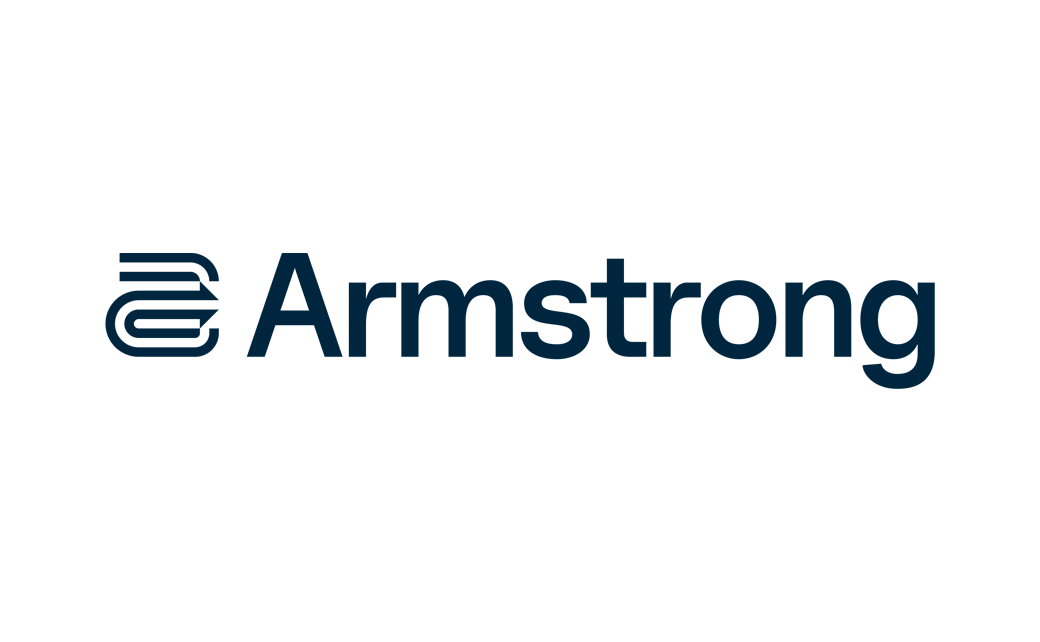Excellent Tips To Selecting An Office Moving Company
Wiki Article
Flexible, Reliable And Customer-Focused Are The 10 Most Important Guidelines To Follow When Moving Your Office.
Reliability, flexibility, client-centricity and adaptability are the most important elements in the smooth and efficient office relocation. Relocations that are adaptable to the requirements of the clients, reliable and focused on customer satisfaction can make sure that disruptions are minimized and you will have a good experience. Here are 10 suggestions for success:
1. Provide Customized Relocation Plans
Offer tailored relocation plans that meet the specific requirements of each client. To minimize downtime and ensure alignment with the business's goals It is essential to know the needs of each customer, which includes their budget, timeline and personal preferences.
2. Maintain Transparent and Open Communication
Communication should be transparent starting from the beginning. Keep your clients updated at each step, starting with the initial planning until the installation. Regular updates strengthen trust and allow quick adjustments in the event of any problems.
3. Offer flexible scheduling Options for flexible pricing
Be aware of different timelines for business. Flexible scheduling is a good way to minimize any disruption to the client's operations. Plan contingency plans, and be prepared to adapt to unexpected changes in the last second.
4. Develop a Reliable Process to manage projects
A project coordinator should be assigned to oversee the relocation. This ensures consistency and security of communication, planning, as well as execution. A single point of contact eases the coordination process, and also allows rapid responses to concerns of clients.
5. In order to ensure that the site is assessed thoroughly and preparation prior to moving, it is important to conduct an exhaustive site evaluation.
Conduct thorough site assessment of both the current and new office locations. This can help to determine the potential problems, such as specific handling requirements, or access restrictions for sensitive equipment. Develop a plan to improve reliability and decrease the chance of unexpected problems.
6. Develop a Robust Risk Management Strategy
Consider the possibility of risks and devise strategies to mitigate the risks. This includes preparing for potential delay, equipment failures or unexpected problems. It is essential to offer clients insurance for any loss or damage.
7. Provide flexible and scalable service services
Provide a wide range of services that are tailored to the needs of clients. It could include basic moving service including packing and unpacking and IT setup or even a complete office design and layout. The flexibility of service offerings will allow for a wide range of needs to be fulfilled.
8. Make sure you have minimal downtime using efficient Relocation Strategies
Explore strategies to reduce the amount of downtime you experience, like night or phased moves. For clients who are required to keep their business running, this is vital. Check that vital systems like IT and phones are swiftly functioning in the new office.
9. Focus on Client-Centric Service
Pay attention to the feedback of clients and adjust services in line with feedback. By anticipating customer needs and responding to issues, offering exceptional customer service, you can ensure that the move is as stress free as possible.
10. Provide Follow-up Support Following Moving
Support after the move, which includes troubleshooting any issues that arise after the relocation. Contact clients regularly to obtain feedback and confirm satisfaction. The ability to resolve issues as soon as is possible demonstrates trustworthiness and a method that is focused on the needs of the client.
The conclusion of the article is:
A service that is focused on reliability, flexibility and client-centricity is able to differentiate its services from others and deliver an easy, personal experience for each customer. This approach is not only effective in building trust but also encourages a long-term relationship and repeat business. Take a look at the top rated office clearence blog for blog advice including used office chairs, used office chairs, 2nd hand office chairs, used herman miller, herman miller embody second hand, aeron miller office chair, used embody herman miller, discount office furniture, office furniture liquidation near me, herman miller aeron chair second hand and more.

Security And Compliance: 10 Tips On Document Management Systems
Compliance and security are important aspects of every document management system (DMS). A properly-designed DMS must have strong security features and be in conformity with the industry's standards and regulations, such as GDPR, HIPAA, or ISO standards, in order to protect sensitive data and prevent costly breaches. Here are ten suggestions to help you maximize compliance and security within your DMS.
1. Implement Role-Based Access Control
Check that the DMS supports Role-Based Access Control in order to restrict access to sensitive documents according to their role and responsibilities. It reduces the chance of unauthorised access and ensures only authorized users can view, modify, or delete documents.
2. Encrypt the data at Rest and in Transport
Use strong encryption methods to secure documents during the process of transport or in stationary. This will prevent unauthorized access even if data are intercepted.
3. Check Industry Regulations
The DMS should be developed to be compliant with specific industry laws such as GDPR HIPAA, CCPA, or FINRA. Be sure that the system is equipped with features that comply with regulatory standards for example, data anonymization.
4. Keep audit trails that are thorough, activity logs, and other documents
The DMS must maintain audit trails which record every activity of users including documents' creation, modification and deletion. These records are vital for observing usage, identifying illicit activities, and also ensuring that the DMS is accountable should there be a security breach.
5. Incorporate Multi-Factor Authentication (MFA)
To add an additional security layer, you can enable Multi-Factor Verification (MFA) for DMS Access. MFA is a combination of something that the user is aware of (like the password) with a device they own (like smartphones) or a thing they're (like a fingerprint) which makes unauthorized access significantly more difficult.
6. Regularly Update and Patch the DMS
Make sure that DMS software is regularly updated with the latest security patches and enhancements. Regularly updating software helps mitigate vulnerabilities that cybercriminals could exploit, creating a safer environment.
7. Implement Data Loss Prevention measures
Incorporate Data Loss Prevention tools to monitor and protect sensitive information within the DMS. DLP can be utilized to identify and stop data breaches. This is done by identifying, blocking access to and transfer of confidential documents.
8. Implement Document Retention and Disposal Policy
Set up automated documents retention and disposition rules in the DMS. It is important to ensure that all documents are stored for the appropriate time and disposed of securely when they are no longer needed.
9. Secure Remote Access (SRA) and Mobile Device Management Management (MDM).
To allow for remote work, be sure that the DMS allows secure remote login, and it is incorporated with Mobile Device Management. Secure documents are accessible on mobile devices via security protocols like device encryption and remote wipe.
10. Perform regular Security audits and checks for compliance
Conduct regular checks of security and compliance to find weaknesses and gaps in the DMS. Periodic assessments ensure that the system is in compliance with changing regulations and protected from new and emerging threats.
The Final
Prioritizing data security and compliance, companies can secure sensitive information and guarantee the integrity of data while avoiding legal and financial penalties. A DMS equipped with robust security and compliance tools gives peace-of-mind, improves trust between clients and stakeholders and creates a reliable and safe document environment. Read the most popular document management software blog for more tips including retention files, archiving information, document management workflow software, retention schedules, best workflow management software, best document management solutions, scanning paper documents, medical document storage, secure document shredding, document archiving system and more.
There Are 10 Factors To Take Into Consideration When Selecting An International Relocation Firm Such As Their Reputation, Experience, And Compliance.
When choosing an international removal company You should take into consideration the following factors: the reputation, experience and reliability. These are essential to make sure that the firm can handle the complexity of international relocations and offer reliable and efficient service. These 10 suggestions to evaluate the international relocation company and decide on their requirements.
1. Research Company Reviews and Testimonials
Find online cases studies and testimonials from past clients. Positive feedback from previous clients can provide an indication of the reliability of the business and the quality of their service.
2. Check industry certifications and memberships
Find out if the business is accredited and a member of trustworthy organizations, like FIDI Global Alliance/European Relocation Association (ERA) or holds industry-relevant certifications. These certifications indicate compliance with standards and best practices in the industry.
3. International Relocation Years of Experience:
Examine the company's expertise in managing international relocations. An organization with a lot of experience is better equipped to handle the complicated logistics and customs regulations associated with international moving.
4. Study Case Studies, and Relocations that have been successful.
If you are able If you can, ask the company for previous examples or instances of international relocations that they have handled. This will help you assess their ability in managing various aspects of an international move, from destination services to logistics.
5. Check for compliance with International Regulations
Check to see that your company is in compliance with international laws and regulations as well as local laws as well, both in the nation of origin and the destination. The regulations for customs and visas and immigration, and other legal considerations are included.
6. Check your insurance coverage.
Verify that they have comprehensive coverage for international moves and clearly laid out procedure to deal with any claims. The proper protection of your possessions will give you peace-of-mind and help protect them in event of loss or damage.
7. Check the Customer Support Quality
Examine the support level offered by the company. A prompt, efficient communication system and a single point of contact are essential in navigating the challenges of international relocations and addressing any issues that may occur.
8. Review their Global Network and Partnerships
Think about the company's global network of agents and partners. An extensive global network can increase the effectiveness and efficiency of the relocation process. This will allow for smooth coordination between countries.
9. Verify that they are adhering to Ethical and Professional Standards
Verify the company's ethical and professional standards. Included in this are transparent pricing fair practices, and the protection of confidentiality for clients. The use of ethical methods helps create an enjoyable and secure relocation experience.
10. Quotes that are transparent and specific can be sought
Request a quote that includes the total cost of all services and charges. Transparency in pricing helps avoid unanticipated costs and allows you to know what services are included. Comparing quotes from several companies can help you find an affordable price.
Conclusion
The most important aspect of a successful relocation is to select an international removals company that has the right reputation, expertise, as well as compliance. If you conduct your own research examine certifications, review experiences, and ensure compliance with regulations to select an organization that will effectively and professionally, you will minimize stress and problems. Follow the recommended here are the findings about international relocation companies for website examples including relocations company, relocating overseas shipping, moving company uk, movers uk, international movers, house moving services, removal company sydney, interstate moving quote, removal companies, overseas moving company and more.
